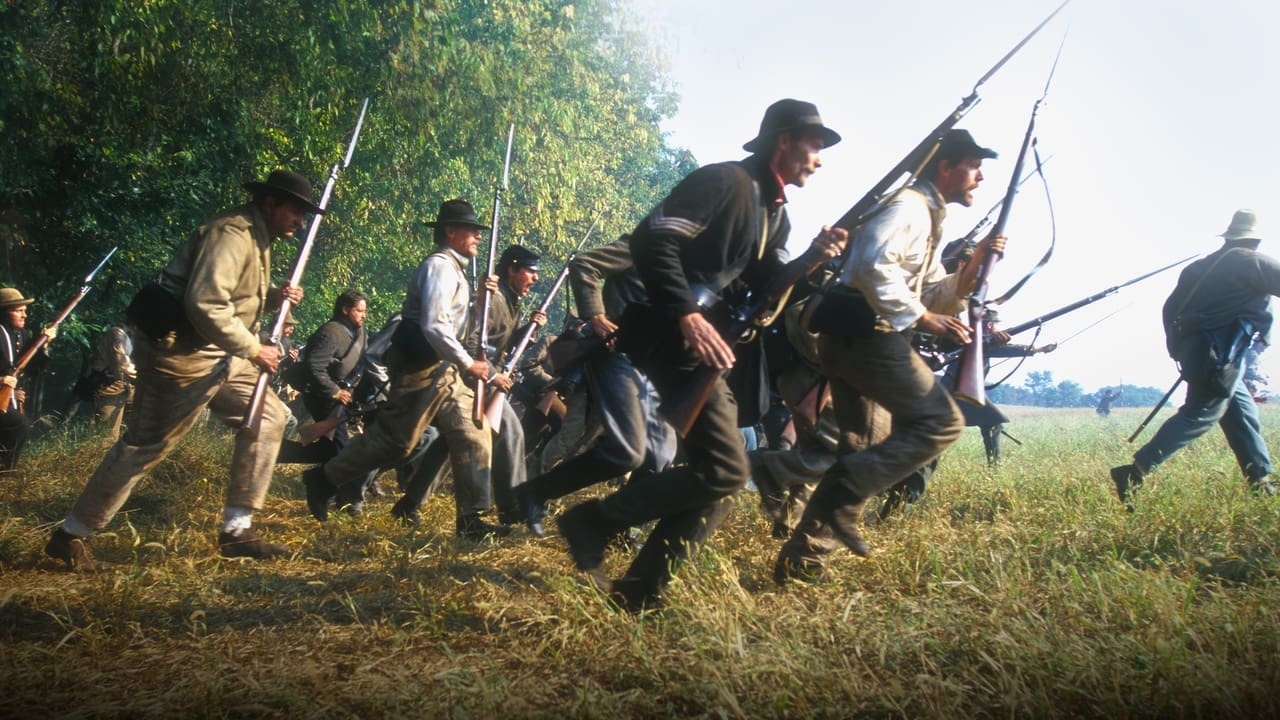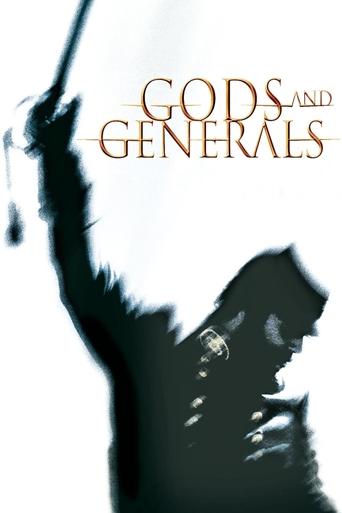

35% - The filmmakers fanboy-ing over their fantasy iteration of Thomas "Stonewall" Jackson. His demise marks the end of the film.35% - Blatantly revisionist 'Lost Cause' propaganda masquerading as 'history'. Depicts blacks in the confederacy as a collection of Uncle Remus and Aunt Jemima characters serving the cause of their own free will. Shows only major battles which were counted as confederate victories (completely ignores the Battle of Shiloh).10% - A subplot involving two stage actors mostly so the film-makers can allude to President Lincoln's assassination, includes a particular lurid performance of the murder scene from Shakespeare's Julius Caesar.20% - Only this part is a true prequel to 'Gettysburg'; shows the pre-Gettysburg story of the 20th Maine and Colonel Joshua Chamberlain, including their decimation at the Battle of Fredricksburg**tl;dr** 80% pro-confederate Hogwash; go re-watch 'Gettysburg' instead
... View MoreThis movie must have been one of the most tedious pieces of whitewashing cinematography, which is an insult to all those who died and suffered in the US Civil War. One of the biggest cringe worthy character in the whole movie was the bible thumping, self-righteous maniac "Stonewall Jackson". Most obvious miss representation of the whole war was with the "Cook" he accepts in his service and all the lines that "Cook" had to say. I believe that the said movies should be remade by Spielberg and Hanks, now that would be one hell of a history lesson with way less whitewashing. There were too many speeches to justify the cause, be that of the North or South. However, speeches of the South were true, in your face, whitewashing bull and cow dung.
... View MoreOriginally published on Feb. 14, 2003This Robert F. Maxwell-directed Civil War epic is the second of a trilogy (after 1993's "Gettysburg," while "Last Full Measure" is scheduled to conclude) chronicling this country's most devastating conflict. And, while a bit over long (at 3 and-a-half hours) as well as a bit preachy in parts - and it could have been titled "The Stonewall Jackson Story," the picture is often engrossing and powerful. The battle scenes, which accurately depicted the insane tactic of marching directly into enemy rifle and cannon fire unblinkingly, are some of the best this scribble has witnessed. Movie begins with the Confederates firing on the Federal Fort Sumter in 1861 and depicts U.S. Army Col. Robert E. Lee (Robert Duval, Oscar winner for "Tender Mercies") turning down command of the Northern Army of the Potomac. He later becomes the leader of the Army of Northern Virginia. There are three main battles featured here: the first battle of Manasas (called Bull Run by Northern writers, July, 1861), Fredericksburg (December 1862) and Chancellorsville (May, 1863), all Confederate victories utilizing Lee's tactical brilliance as well as the invaluable assistance of his most trusted and able cavalry general, Jackson (played wonderfully by Stephan Lang, Gen. George Pickett in "Gettysburg," but best known as Ike Clanton in "Tombstone"). Lee realized that a long war of attrition would favor the North, which could call upon a population of approximately 20 million, as well as a huge industrial advantage. The South had just six million people, including three million slaves whom they would never arm. He also understood the art of maneuvering his troops and diving his forces to his advantage. And, much like Napoleon, scored victories while tremendously outnumbered. Quick and decisive wins were needed to throw the industrial Union into a panic and make the citizens less hungry for war while attracting possible aid from European nations. Jackson understood these tactics, as well, and used them to brutal effectiveness. He was fearless, too, earning his nickname at Manasas, standing like a stone wall before his retreating men and rallying them to victory. Both he and Lee attended West Point (when CSA Pres. Jefferson Dave was James Buchanan's Secretary of War) and learned strategy not only from Napoleon, but Wellington and Frederick the Great, among other brilliant military leaders. During the first two years of the war, the generalship and élan of the South scored triumph after triumph in the Eastern Campaign, while Federal leaders such as Gen. George B. McClellan and other lesser known men (such as Ambrose Burnside and George Meade, among others) just sat on their hands - much to Pres. Abraham Lincoln's ire. Jackson, as portrayed by Lang, was a complex and nuanced man of religious piety who abhorred the institution of slavery yet fought for the cause to sustain it. His relationships with his men, his wife and the daughter of a friend, Jane Corbin (Lydia Jordan, "Third Watch" TV series) betray a sensitive individual who seems woefully out of place in this great conflagration. His tactics, however, were second to none and who knows what his death (at the hands of his own troops shortly before Gettysburg) mortally hurt the Confederate cause.
... View More'Gods and Generals' is one of the best films I have ever seen, it is also the best American Civil War film of our time in my opinion. The story is touching, it shows the real side of the Confederacy and doesn't incriminate them as every other film does. Although the Confederacy had slaves etc, they weren't all bad people. In fact many were intellectuals and gentleman etc. This film shows a divided nation in its most fragile time to date. I highly recommend this film to anyone who is interested in the American Civil War or just likes a good historical film.I feel the film, actors and musicians never got the recognition that they deserved. This film was emotional, epic, historically accurate and interesting. I hope you enjoy this film as much as I do.
... View More